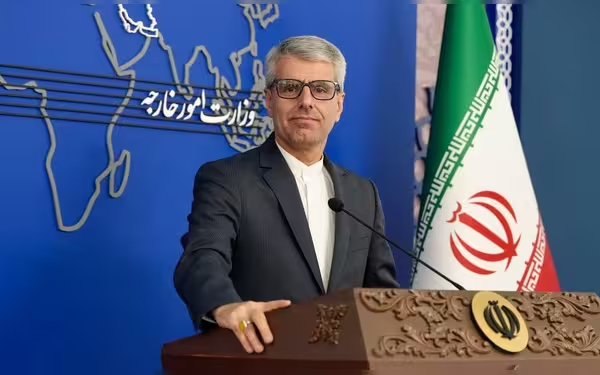Saturday, December 21, 2024 04:56 PM
Iran Aims to De-escalate Nuclear Tensions Amid International Scrutiny
- Iran commits to preventing nuclear program tensions.
- IAEA urges Iran to enhance cooperation on nuclear activities.
- Iran maintains it does not seek atomic weapons.
 Image Credits: menafn
Image Credits: menafnIran expresses commitment to de-escalate tensions over its nuclear program amid IAEA scrutiny and international sanctions.
In recent developments, Iran has expressed its commitment to preventing any escalation of tensions surrounding its nuclear program. This statement was made by Esmaeil Baghaei, the spokesperson for Iran's Foreign Ministry, during a press briefing held in Tehran on December 2. The backdrop of this announcement is the ongoing scrutiny of Iran's nuclear activities, particularly following a resolution passed by the International Atomic Energy Agency (IAEA) on November 21.
Baghaei emphasized that Iran's nuclear program is not intended to provoke confrontation but is instead designed to meet the country's needs. He pointed out that the actions of opposing nations often aim to create obstacles for Iran's nuclear ambitions. Despite these challenges, he asserted that no evidence has been presented to suggest that Iran is evading its nuclear responsibilities.
The IAEA's resolution, which garnered 19 votes in favor, 12 abstentions, and 3 votes against, urged Iran to enhance its cooperation with the agency. It specifically called for credible documentation regarding uranium residues found at two undeclared sites within Iran. This resolution has added pressure on Iran, which has been navigating a complex international landscape since the United States withdrew from the nuclear deal in May 2018 and reinstated sanctions.
In response to these sanctions, Iran has adopted a strategic approach to its nuclear sector, a decision made by the Iranian parliament at the end of 2020. This led to a suspension of additional measures and the Additional Protocol that was part of the original nuclear agreement. As a result, the IAEA's monitoring capabilities have been significantly reduced, by approximately 20 to 30 percent.
It is important to note that Iran has consistently maintained that it does not seek to develop an atomic bomb and does not support the production of weapons of mass destruction. Recently, 39 members of the Iranian parliament have called upon the Supreme National Security Council to reassess the country's defense doctrine concerning nuclear weapons.
On November 29, discussions took place in Geneva involving deputy foreign ministers from Iran, the United Kingdom, France, and Germany, focusing on regional issues and Iran's nuclear program. These talks are expected to continue, highlighting the ongoing diplomatic efforts to address the complexities of Iran's nuclear ambitions.
The situation surrounding Iran's nuclear program remains delicate and multifaceted. As Iran seeks to navigate international pressures while asserting its rights, the global community watches closely. The outcome of these discussions and Iran's future actions will be crucial in determining the trajectory of its nuclear program and its relations with other nations. Understanding these dynamics is essential for grasping the broader implications for regional and global security.













